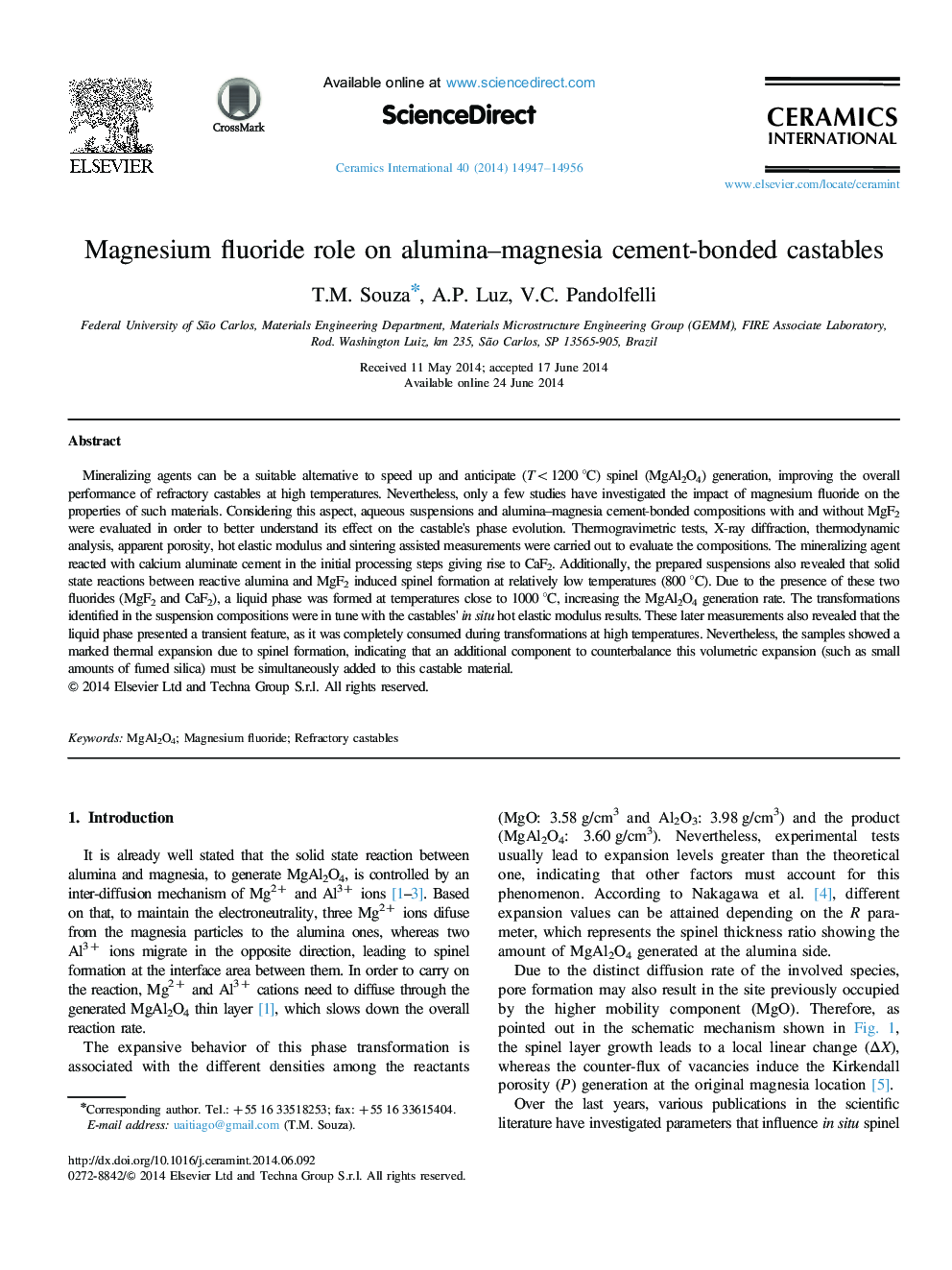| Article ID | Journal | Published Year | Pages | File Type |
|---|---|---|---|---|
| 1461240 | Ceramics International | 2014 | 10 Pages |
Mineralizing agents can be a suitable alternative to speed up and anticipate (T<1200 °C) spinel (MgAl2O4) generation, improving the overall performance of refractory castables at high temperatures. Nevertheless, only a few studies have investigated the impact of magnesium fluoride on the properties of such materials. Considering this aspect, aqueous suspensions and alumina–magnesia cement-bonded compositions with and without MgF2 were evaluated in order to better understand its effect on the castable׳s phase evolution. Thermogravimetric tests, X-ray diffraction, thermodynamic analysis, apparent porosity, hot elastic modulus and sintering assisted measurements were carried out to evaluate the compositions. The mineralizing agent reacted with calcium aluminate cement in the initial processing steps giving rise to CaF2. Additionally, the prepared suspensions also revealed that solid state reactions between reactive alumina and MgF2 induced spinel formation at relatively low temperatures (800 °C). Due to the presence of these two fluorides (MgF2 and CaF2), a liquid phase was formed at temperatures close to 1000 °C, increasing the MgAl2O4 generation rate. The transformations identified in the suspension compositions were in tune with the castables׳ in situ hot elastic modulus results. These later measurements also revealed that the liquid phase presented a transient feature, as it was completely consumed during transformations at high temperatures. Nevertheless, the samples showed a marked thermal expansion due to spinel formation, indicating that an additional component to counterbalance this volumetric expansion (such as small amounts of fumed silica) must be simultaneously added to this castable material.
